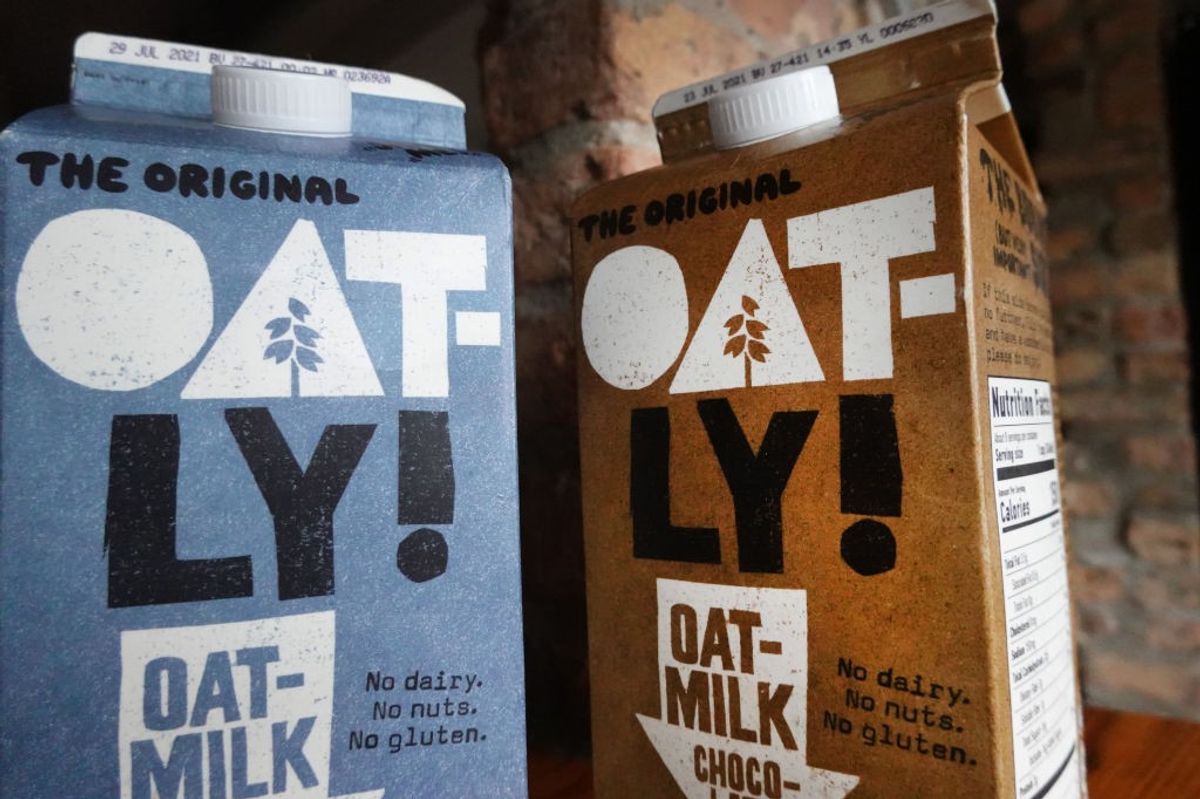Dairy alternatives may have to change their names if new rules to prevent shoppers confusing plant-based with real dairy products are imposed.
With trading standards officials thought to be on the brink of issuing new guidance, including a ban on the use of words and phrases like “m*lk”, “cheeze” and “not milk” on labels, the Plant-based Food Alliance UK (PbFA) is set to make a last-ditch appeal to the environment secretary to intervene.
While custard creams, salad cream and cream crackers are among the foods that are exempt from the rules, the experts said terms like “soya yoghurt” and “vegan mozzarella” should not be used. Instead, they propose “soya dessert fermented with live cultures” and the literal “vegan soft-white balls with a light cheese flavour”.
Marisa Heath, the PbFA’s chief executive, said it would set out its concerns, which include the risk that the resulting upheaval could push up prices, in a letter to Steve Barclay. It will request that the guidance is dropped and the regulations reviewed.
“At the time when we should be encouraging consumers to make more sustainable choices … this is a bad move,” said Heath, who suggested an enforcement drive would harm the wider food industry.
“Major retailers will have to rename their own-brand plant-based products,” she said. “This will cause unnecessary time and financial costs in an industry that is already doing its best during the cost of living crisis. This could then have an impact on consumer prices too.”
Ian Hepburn, the marketing director of Upfield UK and Ireland, which makes I Can’t Believe It’s Not Butter, said the spread had been in millions of fridges across Britain for nearly 35 years.
“It’s implausible that anyone would be confused,” he said. “In 2023 we didn’t receive a single complaint of consumer confusion. We are baffled by these proposed restrictions which do nothing but add bureaucracy to an outdated EU law.”
The latest version of the guidance, dated January 2024 and seen by the Guardian, has not been watered down despite the concerns raised by the plant-based food industry.
The draft opinion is written by the Food Standards and Information Focus Group (FSIFG), a leading group of trading standards officers.
The FSIFG explains, “Technological innovation is leading to the construction of products offered as alternatives to conventional foods of animal origin. It is important that products are clearly distinguished, understood and nutritional differences are not confused.”
The document says plant-based brands should not use homophones, asterisked characters or other wordplay. Words like “whole” are also outlawed. Analysts said using fun names like m!lk or m*ilk has historically been a way to encourage people to try plant-based products.
Companies fear the restrictions could be in place by Easter. If they are the subject of complaint, they could face enforcement action such as having to change a brand name or packaging.
Bryan Carroll, the general manager of Oatly UK and Ireland, said it was “frankly insulting” to assume people could not tell the difference. Did the UK really want to be a country with some of the “most draconian rules about how we describe our food and drink?” he added.
A spokesperson for the Department for Environment, Food and Rural Affairs said, “This is a draft opinion from a group who are independent of government. There are no plans to change existing legislation in this area.”


